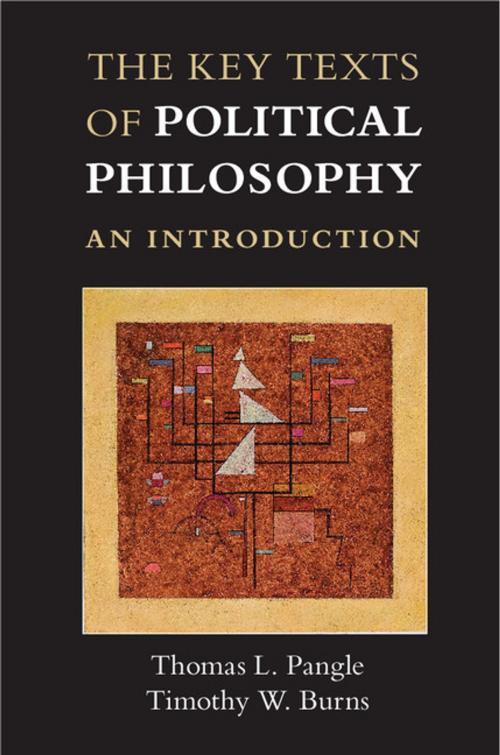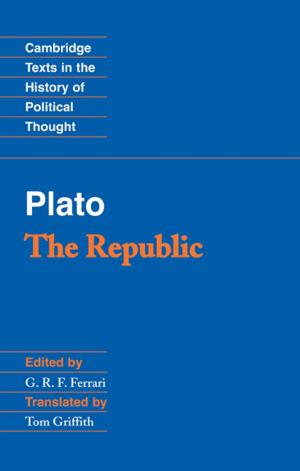The Key Texts of Political Philosophy
An Introduction
Nonfiction, Religion & Spirituality, Philosophy, Political, Social & Cultural Studies, Political Science| Author: | Thomas L. Pangle, Timothy W. Burns | ISBN: | 9781316053522 |
| Publisher: | Cambridge University Press | Publication: | October 6, 2014 |
| Imprint: | Cambridge University Press | Language: | English |
| Author: | Thomas L. Pangle, Timothy W. Burns |
| ISBN: | 9781316053522 |
| Publisher: | Cambridge University Press |
| Publication: | October 6, 2014 |
| Imprint: | Cambridge University Press |
| Language: | English |
This book introduces readers to analytical interpretation of seminal writings and thinkers in the history of political thought, including Socrates, Plato, Aristotle, the Bible, Thomas Aquinas, Machiavelli, Bacon, Hobbes, Locke, Montesquieu, Rousseau, Tocqueville, Marx, and Nietzsche. Chronologically arranged, each chapter in the book is devoted to the work of a single thinker. The selected texts together engage with 2000 years of debate on fundamental questions including: what is the purpose of political life? What is justice? What is a right? Do human beings have rights? What kinds of human virtues are there and which regimes best promote them? The difficulty of accessing the texts included in this volume is the result not only of their subtlety but also of the dramatic change in everyday life. The authors shed light on the texts' vocabulary and complexities of thought and help students understand and weigh the various interpretations of each philosopher's thought.
This book introduces readers to analytical interpretation of seminal writings and thinkers in the history of political thought, including Socrates, Plato, Aristotle, the Bible, Thomas Aquinas, Machiavelli, Bacon, Hobbes, Locke, Montesquieu, Rousseau, Tocqueville, Marx, and Nietzsche. Chronologically arranged, each chapter in the book is devoted to the work of a single thinker. The selected texts together engage with 2000 years of debate on fundamental questions including: what is the purpose of political life? What is justice? What is a right? Do human beings have rights? What kinds of human virtues are there and which regimes best promote them? The difficulty of accessing the texts included in this volume is the result not only of their subtlety but also of the dramatic change in everyday life. The authors shed light on the texts' vocabulary and complexities of thought and help students understand and weigh the various interpretations of each philosopher's thought.















